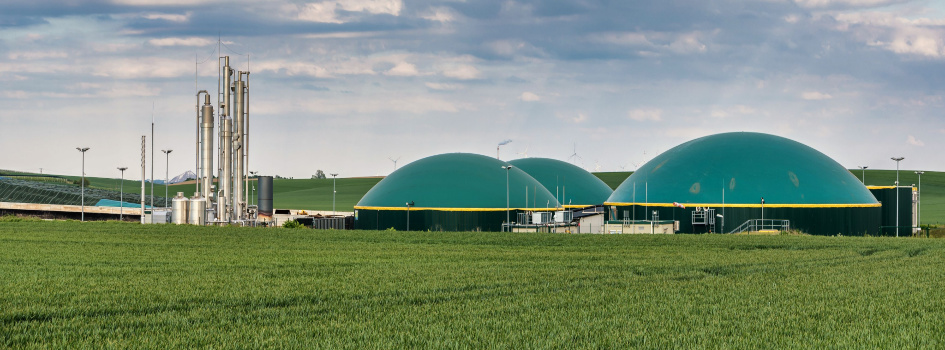
Bioenergy with Carbon Capture and Storage – A New Approach
Global energy usage is increasingly favoring the use of renewable energy. This trend is a result of the drive for cleaner energy usage to sustain our natural environment. Bioenergy with carbon capture and storage is an exciting new technology that can be used to achieve environmental protection while providing us with the energy we need to optimize our daily lives.
What Is Bioenergy with Carbon Capture and Storage (BECCS)?
Bioenergy with carbon capture and storage is an energy conversion technology that harnesses biomass for generating heat, electricity, gas, and liquid fuels. As implicit in its name, BECCS captures and stores carbon to achieve various forms of useful energy.
Purpose
Climate change represents a critical topic of discourse today as the effects of environmentally harmful human activities on our planet continue to occur. Constant emission of greenhouse gases from burning fossil fuels leads to adverse weather events like extreme heat, increased rainfall, flooding, and drought.

With global CO2 levels still rising, negative emission technologies are desperately needed. BECCS is an option with the potential for widespread use to limit the amounts of harmful emissions being discharged into the natural environment.
Process
The BECCS process follows straightforward steps from raw material sourcing to energy generation. Biomass is typically comprised of compost (decomposing organic materials), municipal wastes, and wood collected specifically for bioenergy generation.
Once proper quantities of biomass have been collected, they are burned to produce valuable energy. The CO2 resulting from this combustion is then captured and sequestered for later use. Biomass combustion can also be used to generate electricity, produce heating for various purposes, or as create gas/ liquid fuels. BECCS technology is considered to be carbon negative for the following reasons:
The biomass growing process serves as a form of carbon sequestration as the decomposing plants and trees hold onto carbon generated during respiration. The carbon emissions generated during biomass burning are immediately captured and stored in natural geological formations or man-made landfills, where they won’t exert any adverse effects on the climate.
Benefits
BECCS offers several benefits, which are highlighted below.
Energy Generation
BECCS generates various forms of energy, including heat, electricity, and fuels, that will be highly beneficial for integration in sectors that are hard to decarbonize.
Reduction in Global Warming/Climate Change
Perhaps one of the most significant advantages of BECCS is its potential impact in the fight against global warming. Since BECCS is a negative emissions technology, the method can be helpful in removing significant amounts of carbon dioxide emissions from the atmosphere.

Challenges
Like with every other available technology, the implementation of BECCS has its limitations and challenges. Outlined below are some key challenges to be addressed to optimize outcomes with bioenergy capture and storage systems.
Sourcing Sufficient Quantities of Biomass
To serve as a major route to reversing climate changes, large quantities of biomass must be sourced and combusted. To meet global temperature targets, at least 20 billion tons of carbon must be removed from the atmosphere yearly. Currently, BECCS can only handle a fraction of that burden due to biomass sourcing issues.
Local Air Pollution
Burning biomass will create air pollution that will negatively impact the local environment.
Food Price Concerns
Growing bioenergy food crops can cause food prices to soar as more farmable land will be used to develop specific bioenergy crops at the expense of other produce.
Increased Water Requirements
Increased water requirements for biomass crops may pose a challenge in areas where access to water is limited.
Loss of Biodiversity
Dedicated biomass crop farming can alter the plant and animal diversity within the habitat and threaten the area’s biodiversity.
Safety Concerns for Geological Storage
BECCS activities carry a potential safety risk during carbon capture and sequestration. Pipeline leaks, possible pollution of nearby water sources, and storage bed disruptions from seismic activities are safety issues that must be carefully considered.
BECCS and Climate Change
While some challenges limit the current deployment of bioenergy with carbon capture and storage (BECCS) technology globally, if fully harnessed, it can be used to improve global climate conditions significantly. In association with other harmful emission energy sources, BECCS has the potential to help drop the global temperature by 2oC.
The Future of BECCS
With more nations joining the pledging to cut carbon emission levels in line with the UN Climate Talks in Paris, BECCS is set to become a key technology that helps achieve a carbon-neutral future. Once the challenges to more widespread use have been tackled, BECCS will contribute to providing cleaner, environment-friendly energy for both domestic and industrial applications.
Read more about carbon capture in the oil and gas industry.
IFS Technology Can Support Your Carbon Capture Needs
At IFS, we provide state-of-the-art carbon capture and sequestration technologies that optimize your energy generation processes.
Please contact us today for more information on the bioenergy treatment services we offer.

